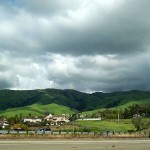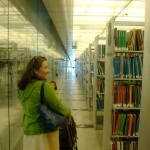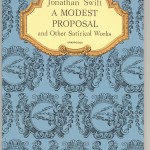 With the shift in new routines, I’m missing a few things that I know the non-private MFA would offer: externally-imposed structure and accountability. But! I’m a Capricorn, as I’ve said, and usually good with internally-imposed deadlines.
With the shift in new routines, I’m missing a few things that I know the non-private MFA would offer: externally-imposed structure and accountability. But! I’m a Capricorn, as I’ve said, and usually good with internally-imposed deadlines.
So with the beginning of a new school year, it’s time for a new assignment. To help with more regular posts, I’m introducing a new occasional feature here: a series of short interviews with writers, historians, and anyone else who’s interested in questions of writing, history, technology, and memory.
Today’s inaugural series post is a short interview with my good friend and colleague, Hans Ostrom. One of my favorite stories about Hans is our very first meeting. I’d done some research before we met, and saw that we’d gone to the same high school. I realized that my high school principal also had the same last name, and so I asked Hans if they were related. Hans raised his eyebrows, dropped his jaw, turned slightly paler, and actually dropped the paper he was holding. My high school principal was (is) Hans’s older brother. Hans and I have worked together now for almost seven years.
*****
KikuGirl (KG): In the “customary” Google/Wikipedia search, I couldn’t find any interviews with you! Are you that reclusive? Has anyone called you the J.D. Salinger of Tacoma, or Sierra City, where you grew up?
Hans Ostrom (HO): Ah, this one is easy. There are no interviews because no one has been interested in interviewing me. I like the interview as a genre, and I don’t mind being interviewed. One problem, if it’s a problem, is that I have written in a bunch of genres—poetry, fiction, scholarship, criticism, journalism, textbooks, encyclopedias, blogging, etc. I think if I’d decided on one thing early on, I might be better known as a writer of that thing—be it poetry or mystery novels or whatever. But I love to try different kinds of writing. I would say I’m solitary—writing-groups, for instance, have not worked for me, and I’m terrible at literary politics—rubbing elbows, going to the right conferences, etc. So by default, not really design, I’m a lone wolf and a contrarian. But I’m not reclusive, and always thought Salinger was simply bizarre. Whereas I’m simply obscure. I think bizarre pays better.
KG: Speaking of all of that writing: you write and publish more, both in hard-copy print and online, than just about anyone I know. (Maybe you’re the Joyce Carol Oates of the West Coast.) In addition to the multiple, regularly-updated blogs, there’s the edited encyclopedia of African American literature, there’s the poetry collection, the textbooks about creative writing, the scholarly studies, the detective novel, and probably a whole other set of writings I haven’t discovered yet. How do you produce so much, so consistently?
HO: I’m probably a compulsive writer. Not an obsessive one, but a compulsive one. I just love to write, so I write more or less all the time—in waiting rooms, in bed, sometimes while watching TV. I do very well with deadlines, which are a kind of drug for compulsive writers. This all may have started at community college, where I had a full-time academic schedule, worked as an R.A., and wrote sports articles for local newspapers. This required multitasking and writing quickly. So I just tend to plunge in and write and then see what I have later, as opposed to a lot of planning, outlining, etc.—although these are often necessary, too. And one genre tends to carom off the other, so in the midst of an encyclopedia entry, you might get an idea for a poem. [KG: I love this idea.] Writing is probably also my way of processing the world, perhaps of coping.
KG: In your historical novel Honoring Juanita, there are several metaphors for history. There’s the standard history as “the dusty, distant past”; history as the recurring, haunting Juanita; history as the origin of objects (the ventolin buy online trees that the main character, Mary, uses in her woodcarvings); history as sedimented levels of trees and nature. What did writing historical fiction do for you that reading written histories might not have?
Mary is a kind of poet, and I think poets are mad to make history “real”: palpable, something you can touch and smell. Of course, this is impossible, as history is past, is gone. Its effects aren’t gone, but it is, so it always exists once or twice removed. Perhaps my favorite metaphor is the sediment/compost one, history as a slow building up, an accumulation, something that feeds the present, for better or worse—good compost vs. unhealthy compost. A woodcarver, Mary wants to get her hands on Juanita, but of course she can’t.
KG: Elsewhere, you’ve written about the Kindle and e-books, and you (like I) have lived from dial phones to IPhones. How do you think these forms of digital technologies will impact our reading habits, and our memories?
HO: I think they are revolutionizing reading and writing—right now. And this will only accelerate. There’s something called “Moore’s law,” which is that micro-chip storage capacity doubles every 12-24 months. I think you’re seeing an erosion, even a collapse, of publishing hierarchies. Vested interests need to try to prevent this from happening, but I don’t know if they can. We could be witnessing a vast democratization of writing and publishing, and I love it. The old way depended upon an economy of false scarcity, which is reinforced by rigid ideas of “genius,” by making art mysterious (“it can’t be taught”), a fixed canon, only so many slots open for “great” writers, etc. Many people are nostalgic for this setup, but I’m not. Interestingly, you can archive books with Amazon after you’ve read them on Kindle, so there is a chance that people will leave their Kindles to their children—a library of hundreds of books, maybe thousands, if we go by Moore’s number. Few saw this coming. Huge personal libraries owned by everyday folk. At the same time, we may also be entering an era in which most people don’t have the patience to read for a long time or to read complex things. Don’t get me wrong—I love books as books, as artifacts, but I also love these new developments. It’s not an either/or question for me.
KG: What’s your favorite metaphor for history, or your favorite quotation about it, and why?
HO: The compost one I mentioned. I think maybe another expression would be “a necessary illusion.” That is, history represents what is gone, but we need an illusion of its still being there, so we continually create illusions of past—in our personal lives, in history books, in the media (“founding fathers,” “the greatest generation”).
Where history is still alive is its effects, and oddly enough, people are often reticent to accept that reality; thus the U.S. has never fully come to terms with the effects of slavery, for example (just one example—there are many). A kind of deep denial festers, therefore—and you see it coming out in the overreaction to Obama’s being elected. He is as moderate as Eisenhower, but confused racist reactions drive people to make him some kind of Other—socialist, Kenyan, proto-dictator.
I can’t think of a favorite quotation, but I’m sure it would be something ironic, something to let the pretentious steam out of history. There’s probably one from Wilde or Twain.
*****
I’m honored—and frankly, surprised—to note that this is Hans’s first interview. And it’s my first written interview, too. Many thanks to Hans for being the first contestant, and for playing along.
Writing, history, and technology are going to be important in my book, so these interviews are also a form of research. If you know anyone who would be interested in being interviewed for this series, please send me a message at kikugirl (at) kikugirl dot net.







